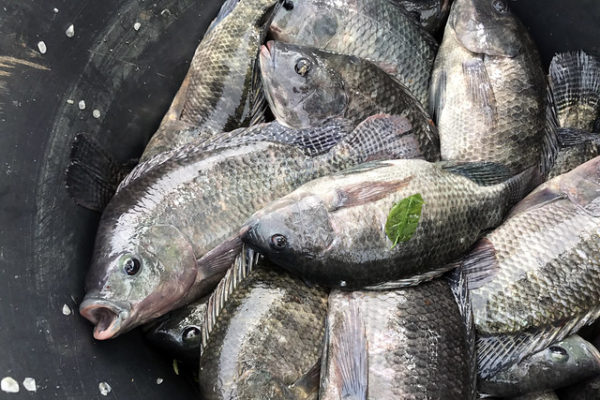Egypt has ranked first in fish farming within Africa, sixth globally and third globally in the production of tilapia.
Egyptian Minister of Agriculture and Land Reclamation al-Sayed al-Quseir made the announcement and said the country has self-sufficiency in fish production, producing more than 2.2 million tons of fish with a great deal of self-sufficiency, and now exports its fish wealth.
There are major fish projects that have recently been opened, such as al-Fayrouz, al-Diba and Berket Ghalioun project for fish farming. Quseir added that executive regulations of the recently issued lakes and fisheries development law are being prepared, which aims to control fishermen and fishing boats, and the quality of fish, as well as eliminating overfishing.
The government is making intensive efforts to provide safe food of various types, he said, explaining that in light of the coronavirus pandemic, most developed countries were unable to provide food to their citizens despite their financial capabilities.
Law for the Protection and Development of Lakes and Fisheries
Egyptian President Abdel Fattah al-Sisi ratified earlier in October Law 146 of 2021, promulgating the Law for the Protection and Development of Lakes and Fisheries published in the official Gazette. The House of Representatives had earlier approved the draft law, which crystallizes its objectives in achieving effective protection for Egyptian lakes, fisheries and beaches, being natural resources of economic and environmental importance.
The law enhances the development of fisheries, especially in light of the lack of procedures followed in protecting the lakes and its natural resources and the weakness of penalties prescribed for crimes of encroachment on fisheries and water channels and the inconsistency of provisions.
Prior to the law, Egypt lacked a precise legal system for fish farming. This led to multiple issues such as the existence of multiple authorities with conflicting competencies related to lakes and fisheries especially those related to the protection and development of lakes and the regulation of fishing activity and the protection, exploitation and development of fisheries.









